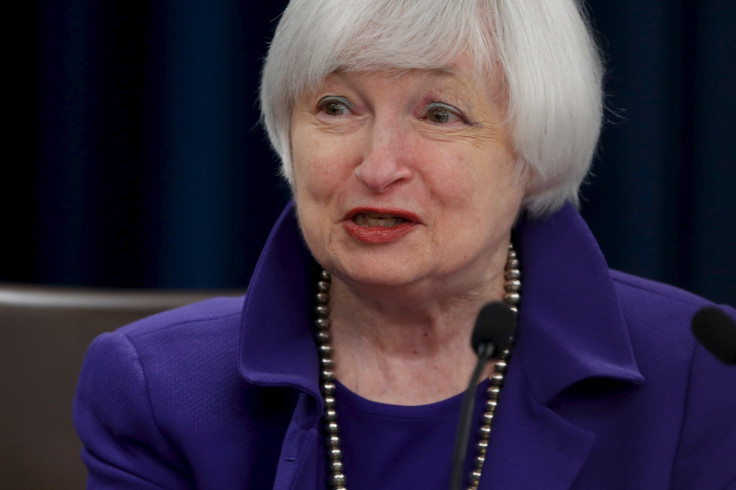US Treasury Got $117B From The Fed In 2015; $19.3B To Fund Federal Highway Bill

The U.S. Federal Reserve sent a record $117 billion to the Treasury in 2015, it announced Monday, surpassing the record $96.9 billion in 2014. The figure included $97.7 billion from its 2015 profits and the transfer of an additional $19.3 billion from its capital surplus account to pay for federal transportation projects, the preliminary data showed.
The Fed had a net profit of $100.2 billion in 2015. “The 2015 audited Reserve Bank financial statements are expected to be published in March and may include adjustments to these preliminary unaudited results,” the Fed said in a press release.
Most of the income was derived from interest on securities acquired from the open market. The Fed holds a big portfolio of assets such as Treasury bonds, as well as mortgage and debt instruments. Since the financial crisis, remittances to the Treasury have grown significantly from $31.7 billion in 2008. In the intervening years, the Fed has bought a large number of bonds that has bolstered its interest income.
With the economy recovering, an increase in interest rates is expected and when that happens, the Fed will have to pay out more money to other banks that deposit money with it. The central bank will also eventually reduce its investment, which has grown to about $4.5 trillion from $900 billion in 2008. The two developments together will cut into the Fed’s profits and lead to a reduction in the amount it sends to the Treasury.
Fed Chairwoman Janet Yellen was not happy with the government tapping the Fed’s capital surplus for funding the Fixing America’s Surface Transportation Act (FAST Act), reportedly saying that “financing federal spending by tapping the resources of the Federal Reserve sets bad precedent and impinges on the independence of the central bank.”
The FAST Act restricts the Fed’s capital surplus at a maximum of $10 billion.
© Copyright IBTimes 2024. All rights reserved.





















